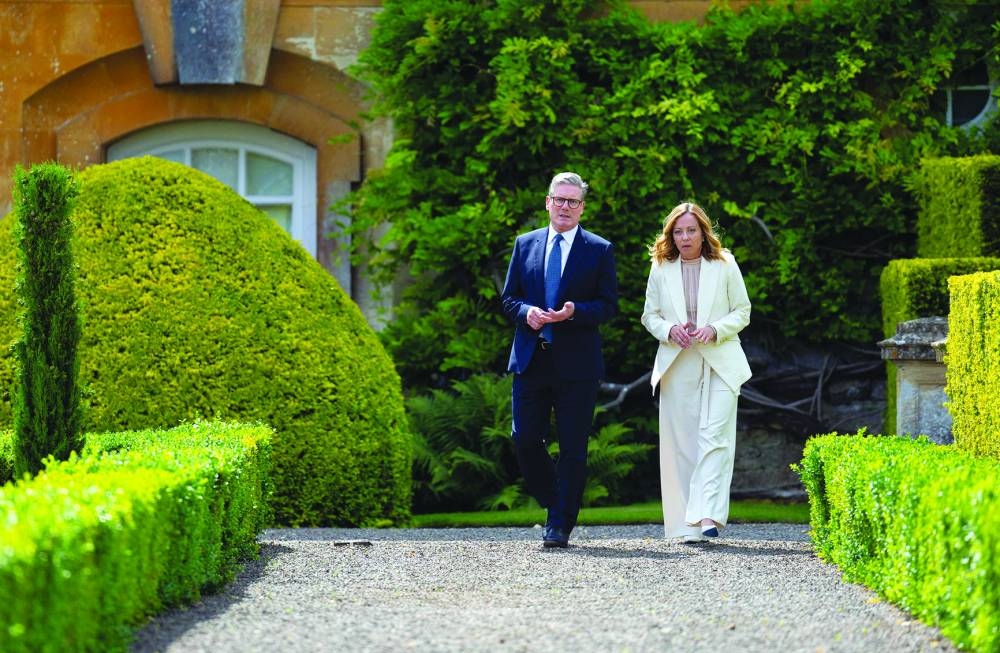Britain’s new Prime Minister, Keir Starmer, yesterday called for closer co-operation in Europe to advance support for Ukraine and tackle the continent’s most pressing problems: illegal migration, climate change and energy security.
Opening a meeting of the European Political Community (EPC) of more than 40 nations at Blenheim Palace, the birthplace of Winston Churchill, Starmer made his bid for a reset in post-Brexit ties with the European Union.
He distanced himself from the previous Conservative government which had threatened to withdraw from an international treaty on human rights, offering other European leaders a clean slate.
“Under my leadership, Britain will be a friend and a partner, ready to work with you, not part of the European Union, but very much part of Europe,” Starmer said in his remarks, referring to Britain’s exit from the EU after a 2016 referendum. “United by our determination to defend them (shared values), and certain about what we can achieve together,” he told other leaders at the EPC, a grouping distinct from the EU and created after Russia’s full-scale invasion of Ukraine in 2022.
His push for closer co-operation takes place against the backdrop of the possible election of Donald Trump, who alongside his new pick for running mate, J D Vance, has suggested cutting US support for Ukraine, leaving Europe to cover the loss. Two weeks after winning a large majority in an election and fresh from his first international trip to Nato in Washington as prime minister, Starmer took to the international stage again, calling on Europe to do more to support Ukraine against Russia.
“So our first task here today is to confirm our steadfast support for Ukraine,” Starmer said at the one-day meeting. Starmer has been determined to reset EU ties after Brexit sparked years of rancour. He has said he does not see Britain rejoining the single market or customs union in his lifetime. European leaders welcomed Starmer’s defence co-operation plans, with French President Emmanuel Macron saying: “This is a great opportunity for a reset.”
Scholz, who has known Starmer for some time, hailed the fact that the EPC was meeting in Britain as “an important sign of European co-operation”.
A decision by Sunak to call the election early, on July 4, gave Starmer the opportunity to use Nato and the EPC to advance early talks, or at least set the mood music for friendlier ties.
Officials stress that the ultimate goal of negotiating a security pact, covering a range of areas such as energy, supply chains, pandemics and migration, will come much later in talks where the EU has been clear there will be no “cherry picking”.

Britain’s Prime Minister Keir Starmer talks with Italy’s Prime Minister Giorgia Meloni during a UK bilateral meeting, at the European Political Community meeting, at Blenheim Palace in Woodstock, southern England, yesterday.
